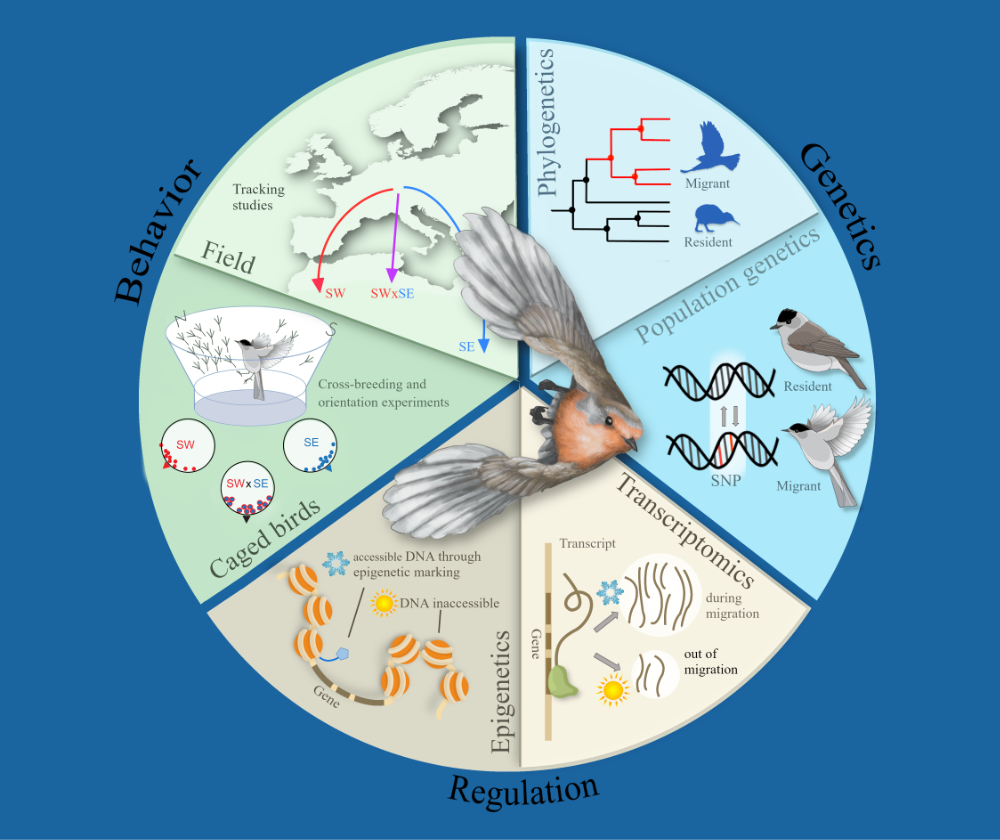Speaker
Description
Staffan Bensch
Migration propensity in birds is evolutionary labile, with many examples of within-species migratoriness increasing or decreasing on the time scale of modern ornithology. In contrast, shifts in migration routes to more nearby wintering grounds seem to be a much slower process, resulting in what has been called “suboptimal migration routes”. We examined the evolutionary history of how some species of Palearctic migratory landbirds have expanded their wintering ranges to include both tropical Africa and Asia, a process that has involved major shifts of migration routes. We found that species with longer migration distances are less likely to colonise wintering grounds in both Africa and Asia. Instead, species with resident populations in the Palearctic have evolved wintering in both Africa and Asia more frequently. While it seems paradoxical that species most capable of extreme migrations are least likely to establish new wintering grounds, these findings indicate that drastic modifications to the genetic migration program are evolutionary difficult. Our analyses imply that major changes of wintering areas occur over long time scales, with the extent migration routes of many species traceable back at least to the last ice age. I will discuss the genetic and evolutionary implications of this apparent inertia, and how it can be understood in the light of few but prominent examples of fast changes of migration directions observed in ecological time.

